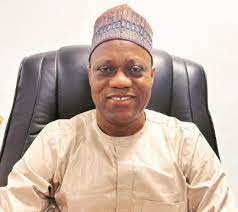The Statistician-General of the Federation and Chief Executive Officer of the National Bureau of Statistics (NBS) Prince Adeyemi Adeniran, on Thursday unveiled plans by the statistics agency to commence before the end of the year the process of producing and publishing weekly crowd-sourced data on food prices using Artificial Intelligence and crowdsourcing methods for six pilot states in Nigeria.
Adeniran, who made this disclosure in his Keynote Address delivered at the 1st Bi-Annual Meeting of the National Consultative Committee on Statistics (NCCS) 2024 held in Keffi, Nasarawa State, said the initiative would serve as an additional source of food price statistics to the conventional monthly CPI and Cost of Healthy Diet reports published by NBS.
Focusing his speech on the theme of the meeting ‘Big Data and Data Science: A New Perspective for Data Analytics and Data Dissemination’, the NBS boss elaborately spoke on the increasing roles big data and data science were now playing in the global economic development drive, noting that “big data is the new oil and the currency that everybody will continue to use” to chart clearer roadmap for sustainable development across all spheres of human endeavours.
Adeniran also spoke on sundry initiatives of the NBS’ management, including huge investments in ICT tools and infrastructure, in its current efforts to align the Nigerian statistical system’s data collection, analysis and production with the global best standards.
According to him, all these efforts align perfectly with the vision of the National Bureau of Statistics and with our aspirations under the new NSDS 2024 – 2028, which was validated in April by stakeholders of the system, to build a robust national statistical system that is well equipped to provide more accurate data and respond to the ever-evolving socioeconomic and data landscape.
He further clarified: “By embracing these initiatives, we are laying a solid foundation for a more resilient statistical system that can effectively meet the dynamic needs of our society and drive informed decision-making across all sectors.
“NBS is already collaborating with the Office of National Statistics in the UK and the African Development Bank to establish the Data Innovation Lab and the GIS Lab in NBS. Only last week we concluded a Mission from the AfDB on the Data Innovation Lab, as well as an assessment of our readiness for a proposed GIS Unit in NBS”, the Statistician-General added.
He described the theme of the meeting as very apt for the present period and for the vision the statistical agency had for the future of the statistical system and policy making in Nigeria, considering the critical role that data plays in decision-making.
On the increasing roles of big data and data science in national socioeconomic development, Adeniran maintained that it had become a major game-changer in the way the Bureau is handling data, in terms of how it collect, process, and disseminate the data, adding that big data presents the agency with vast opportunities to collect, analyse, and disseminate data in ways that were previously impossible.
He expatiated: “With access to a lot more data and information collected seamlessly than ever before, we are not able to gain much more new insights into an array of socioeconomic issues and challenges that affect the day-to-day lives of Nigerians and make better decisions on them.
“For decades, conventional statistics have been the backbone of our national planning, policy formulation, and development progress. We have meticulously collected and analysed data, painting a clear picture of our nation’s social and economic landscape.
“However, the world around us is changing, and changing rapidly. We are generating data at an unprecedented rate, much more than we have ever done in our lifetime – from mobile phone usage to social media interactions, sensor networks to financial transactions. This avalanche of information, often unstructured and complex, is what we call Big Data.
“Big Data alone, however, isn’t enough, and that is where Data Science steps in and makes a difference. It is a powerful blend of statistics, computer science, and subject matter expertise. It equips us with the tools and techniques to unlock the hidden insights within this vast data ocean. Insights that very often can make a difference in whether a businessperson makes a profit or loss; whether the economy grows or stagnates, or whether an individual makes progress and regresses”, the Statistician-General added.
To optimise the emerging opportunities in big data and data science for national development, Adeniran advocated the need for all stakeholders in the national statistical system, particularly the NCCS’ members to enhance the skills of personnel in the various statistics offices in the country.
He stressed: “We must also develop a statistical system that is awash with personnel skilled in data science, statistics, and data engineering, and this should be done sustainably and efficiently, across all levels, of federal, state, and local government.
“Furthermore, we must ensure responsible data governance that addresses privacy concerns, ethical considerations, and data security, particularly for personal details contained in these records”, he added.
In his concluding remarks, the NBS’ CEO, who is also the Chairman of the NCCS, charged all participants at the event to key into the vision he had tried to paint in his address and that throughout the programme and beyond, they should begin to think of the steps they can take daily “to create a world-class statistical system and begin to apply them in places where we have the power to. Let this meeting be the beginning of a journey where data empowers us to build a more informed, inclusive, and prosperous nation.”






